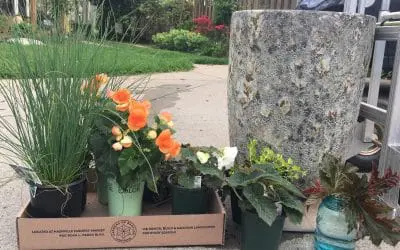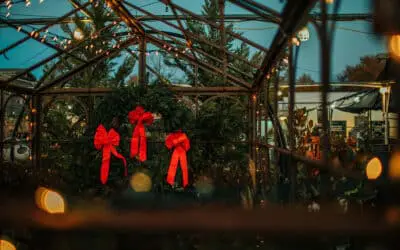As fall arrives, you may turn your attention to growing plants indoors. If you share your space with curious cats or a pup that likes to chew on everything, keep in mind that some houseplants pose a risk. Toxicity in some plants can cause a variety of ailments, ranging from irritation and stomach distress to more serious neurological symptoms – and possibly even death.
The lists below show you common houseplants (adapted from a much longer list provided by the American Society for Prevention of Cruelty to Animals) that, if you display them in your home, should be kept out of a pet’s reach as well as a list of pet safe plants.
This information from ASPCA tells what to watch for:
Five Favorite Houseplants Toxic to Pets
Dracaena species (Corn plant, Dragon tree and other varieties): Symptoms include vomiting (occasionally with blood), depression, anorexia, hypersalivation. Cats pupils may become dilated.
Jade plant: Watch for vomiting, depression or incoordination.
Monstera deliciosa (Swiss cheese plant): A nibble of this will cause intense irritation and burning of the mouth, tongue and lips, and excessive drooling, vomiting and difficulty swallowing, according to ASPCA.
Peace lily: Despite its soothing name, this plant also causes burning and irritation of the mouth, vomiting, excessive drooling, and difficulty swallowing.
Pothos: Devil’s Ivy is a common name for some varieties of Pothos. The mouth irritation, drooling and vomiting in this and many other toxic plants are caused by insoluble oxalates – essentially tiny needle-shaped crystals – in the foliage.
Pet Safe Houseplants
Of course not all plants are toxic; there are many that are perfectly safe for pets if they happen to try a nibble. Here are a dozen houseplant favorites, adapted from ASPCA’s much longer list at its website, that shouldn’t be a problem if Fluffy or Max tries a taste. And since there may be different plants that go by the same common name, knowing the plant’s botanical name helps to know you’ve made the right choice.
African violet (Saintpaulia species); Boston fern (Nephrolepis exalta bostoniensis); Cast-iron plant (Aspidistra elatior); Christmas cactus (Schlumbergera species, also called holiday cactus, Thanksgiving cactus; Gloxinia (Sinningia speciosa); Majesty palm (Ravenea rivularis);
Parlor palm (Chamaedorea elegans); Peperomia (Peperomia species); Phalaenopsis (Phalaenopsis species), also called Moth orchid); Ponytail palm (Beaucarnea recurvata); Shamrock (Oxalis regnellii); Venus flytrap (Dionaea muscipula)
Keep your pets off your plants
If you share your home with pets and unsafe houseplants, the most obvious way to keep them apart is by putting the plants out of reach. That’s easier if the fur friend is a dog; cats pretty much go where they please, so putting a plant on a high shelf may still be asking for trouble.
In that case, diversion or distraction may be a good option. You may be able to train your pet to stay away from plants through positive reinforcement. Provide plenty of safe toys so they won’t be tempted to explore the plants. Try placing scented items that pets don’t like (one suggestion is citrus peels) in the pot. Give cats their own “garden” of cat grass – typically a mixture of wheat, barley, oats or rye grown indoors from seed – to nibble on so they will be less likely to explore your indoor garden.
More on pet plant safety
The American Society for Prevention of Cruelty to Animals’ (ASPCA) Animal Poison Control Center website has a comprehensive guide to plants that are poisonous and non-poisonous to pets (www.aspca.org/pet-care/animal-poison-control).
The ASPCA also offers a 24/7 Animal Poison Control Center helpline, 888-426-4435. A consultation fee may be charged, but the call could save an owner a trip to the ER, or save a pet’s life.





